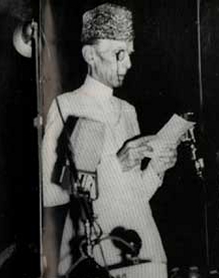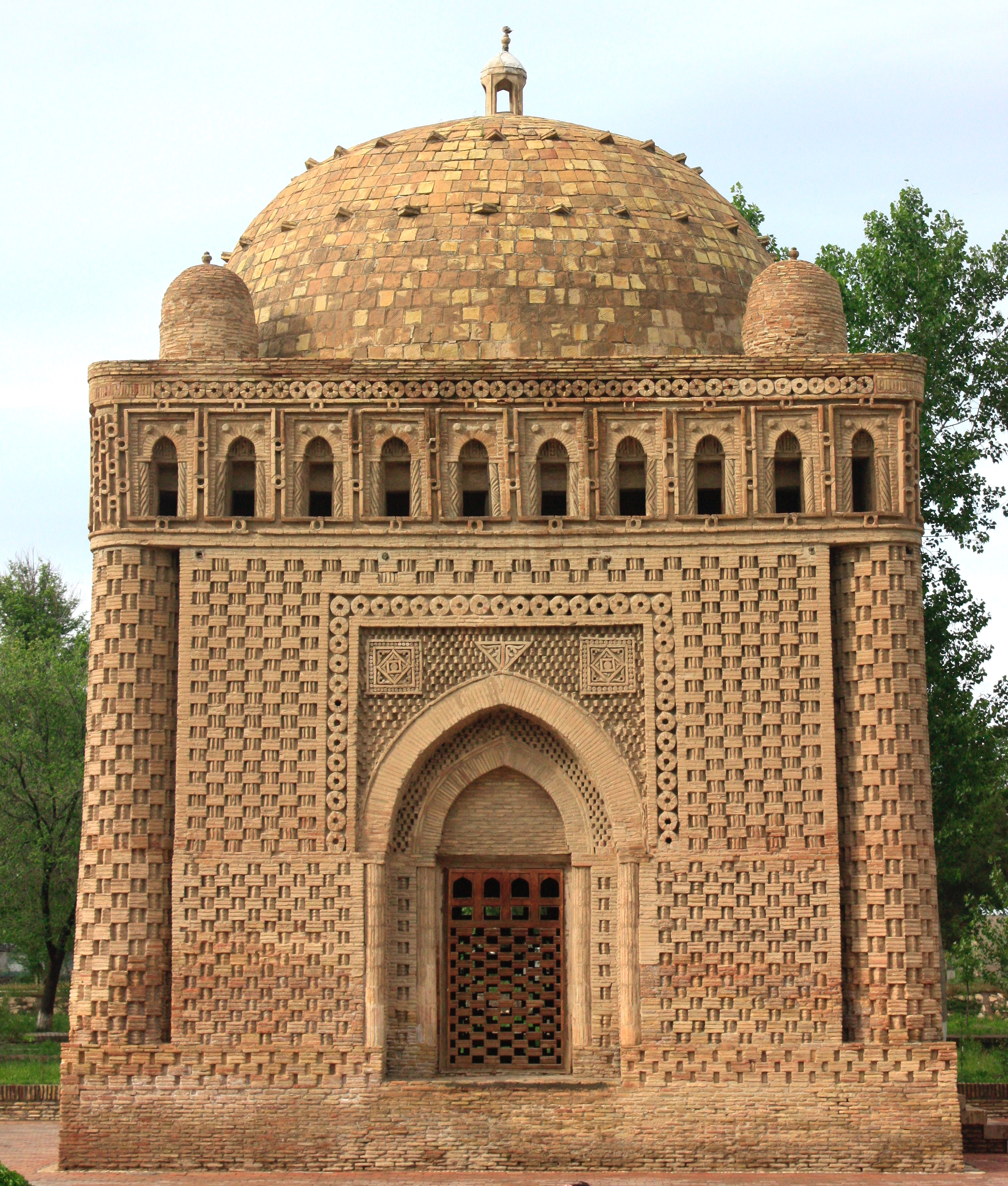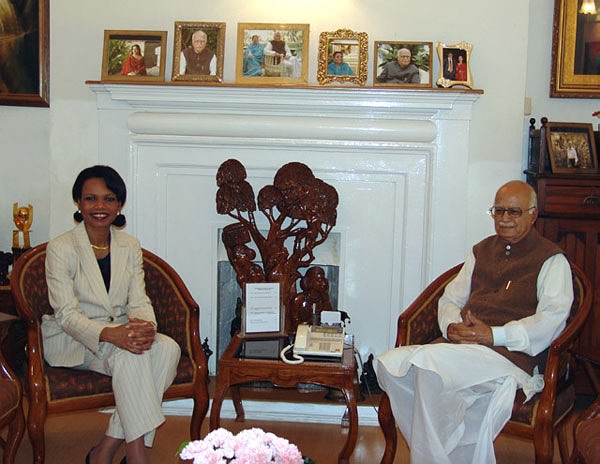|
Muhammad Ali Jinnah's 11 August Speech
The Eleventh August Speech was a speech made by Muhammad Ali Jinnah, founding father of Pakistan and known as Quaid-e-Azam (Great Leader) to the Constituent Assembly of Pakistan. While Pakistan was created as a result of what could be described as Indian Muslim nationalism,Ian Bryant Wells, ''Ambassador of Hindu Muslim Unity'' Jinnah was once an ambassador of Hindu-Muslim unity. When the Partition of India finally occurred, Jinnah, soon-to-be Governor-General of the Dominion of Pakistan, outlined his vision of Pakistan in an address to the Constituent Assembly, delivered on 11 August 1947. He spoke of an inclusive and impartial government, religious freedom, rule of law and equality for all. In his actual speech of 11 August 1947, Muhammad Ali Jinnah said "You are free; you are free to go to your temples, you are free to go to your mosques or to any other place of worship in this State of Pakistan. You may belong to any religion or caste or creed that has nothing to do with ... [...More Info...] [...Related Items...] OR: [Wikipedia] [Google] [Baidu] |
Minar-e-Pakistan
Minar E Pakistan ( ur, , literally "Tower of Pakistan") is a tower located in Lahore, Pakistan. The tower was built between 1960 and 1968 on the site where the All-India Muslim League passed the Lahore Resolution (which was later called the Pakistan Resolution) on 23 March 1940 - the first official call for a separate and independent homeland for the Muslims of British India, as espoused by the two-nation theory. The resolution eventually helped lead to the emergence of an independent Pakistani state in 1947. The tower is located in the middle of an urban park, called the Greater Iqbal Park. Design The tower reflects a blend of Mughal/Islamic and modern architecture. The tower was designed and supervised by, Nasreddin Murat-Khan, a Russian-born Pakistani architect and civil engineer. The minaret provides a panoramic view to visitors who can access the top by climbing up the stairs or by means of an elevator. The tower base is shaped like a flower. The area surrounding th ... [...More Info...] [...Related Items...] OR: [Wikipedia] [Google] [Baidu] |
Pakistan Movement
The Pakistan Movement ( ur, , translit=Teḥrīk-e-Pākistān) was a political movement in the first half of the 20th century that aimed for the creation of Pakistan from the Muslim-majority areas of British India. It was connected to the perceived need for self-determination for Muslims under British rule at the time. Muhammad Ali Jinnah, a barrister and politician led this movement after the Lahore Resolution was passed by All-India Muslim League on March 23rd, 1940 and Ashraf Ali Thanwi as a religious scholar supported it. Thanwi's disciples Shabbir Ahmad Usmani and Zafar Ahmad Usmani were key players in religious support for the creation of Pakistan. The Pakistan Movement started originally as the Aligarh Movement, and as a result, the British Indian Muslims began to develop a secular political identity. Soon thereafter, the All India Muslim League was formed, which perhaps marked the beginning of the Pakistan Movement. Many of the top leadership of the movement wer ... [...More Info...] [...Related Items...] OR: [Wikipedia] [Google] [Baidu] |
Secular And Nationalist Jinnah
Secularity, also the secular or secularness (from Latin ''saeculum'', "worldly" or "of a generation"), is the state of being unrelated or neutral in regards to religion. Anything that does not have an explicit reference to religion, either negatively or positively, may be considered secular. Linguistically, a process by which anything becomes secular is named ''secularization'', though the term is mainly reserved for the secularization of society; and any concept or ideology promoting the secular may be termed ''secularism'', a term generally applied to the ideology dictating no religious influence on the public sphere. Definitions Historically, the word ''secular'' was not related or linked to religion, but was a freestanding term in Latin which would relate to any mundane endeavour. However, the term, saecula saeculorumsaeculōrumbeing the genitive plural of saeculum) as found in the New Testament in the Vulgate translation (circa 410) of the original Koine Greek phrase ... [...More Info...] [...Related Items...] OR: [Wikipedia] [Google] [Baidu] |
Communalism (South Asia)
Communalism is a term used to denote attempts to construct religious or ethnic identity, incite strife between people identified as different communities, and to stimulate communal violence between those groups. It derives from history, differences in beliefs, and tensions between the communities. Communalism is a significant social issue in India, Bangladesh, Pakistan and Sri Lanka. Communal conflicts between religious communities in India, especially Hindus and Muslims have occurred since the period of British colonial rule, occasionally leading to serious inter-communal violence. The term communalism was coined by the British colonial government as it wrestled to manage Hindu-Muslim riots and other violence between religious, ethnic and disparate groups in its colonies, particularly in British West Africa and the Cape Colony, in early 20th century. Communalism is not unique to South Asia. It is found in Africa, the Americas, Asia, Europe and Australia. History The term came ... [...More Info...] [...Related Items...] OR: [Wikipedia] [Google] [Baidu] |
Bharatiya Janata Party
The Bharatiya Janata Party (BJP; ; ) is a political party in India, and one of the two major List of political parties in India, Indian political parties alongside the Indian National Congress. Since 2014, it has been the List of ruling political parties by country, ruling political party in India under Narendra Modi, the incumbent Prime Minister of India, Indian prime minister. The BJP is aligned with right-wing politics, and its policies have historically reflected a traditional Hindutva, Hindu nationalist ideology; it has close ideological and organisational links to the Rashtriya Swayamsevak Sangh (RSS). , it is the country's largest political party in terms of representation in the Parliament of India as well as State legislature (India), state legislatures. The party's origins lie in the Bharatiya Jana Sangh, which was founded in 1951 by Indian politician Syama Prasad Mukherjee, Shyama Prasad Mukherjee. After The Emergency (India), The Emergency of 1975–1977, the J ... [...More Info...] [...Related Items...] OR: [Wikipedia] [Google] [Baidu] |
Hindu Nationalist
Hindu nationalism has been collectively referred to as the expression of social and political thought, based on the native spiritual and cultural traditions of the Indian subcontinent. "Hindu nationalism" or the correct term ''Hindū rāṣṭravāda'' is a simplistic translation and it is better described with the term "Hindu polity". The native thought streams became highly relevant in Indian history when they helped form a distinctive identity in relation to the Indian polityChatterjee Partha (1986) and provided a basis for questioning colonialism.Peter van der Veer, Hartmut Lehmann, Nation and religion: perspectives on Europe and Asia, Princeton University Press, 1999 These also provided inspiration to Indian nationalists during the independence movement based on armed struggle,Li Narangoa, R. B. Cribb ''Imperial Japan and National Identities in Asia'', 1895–1945, Published by Routledge, 2003 coercive politics,Bhatt, Chetan, ''Hindu Nationalism: Origins, Ideologies and ... [...More Info...] [...Related Items...] OR: [Wikipedia] [Google] [Baidu] |
Secular State
A secular state is an idea pertaining to secularity, whereby a state is or purports to be officially neutral in matters of religion, supporting neither religion nor irreligion. A secular state claims to treat all its citizens equally regardless of religion, and claims to avoid preferential treatment for a citizen based on their religious beliefs, affiliation or lack of either over those with other profiles. Although secular states have no state religion, the absence of an established state religion does not mean that a state is completely secular or egalitarian. For example, some states that describe themselves as secular have religious references in their national anthems and flags, or laws that benefit one religion or another. Origin and practice Secularity can be established at a state's creation (e.g., the Soviet Union, the United States) or by it later secularizing (e.g., France or Nepal). Movements for '' laïcité'' in France and separation of church and state in ... [...More Info...] [...Related Items...] OR: [Wikipedia] [Google] [Baidu] |
Sarojini Naidu
Sarojini Naidu (''née'' Chattopadhyay; 13 February 1879 – 2 March 1949) was an Indian political activist, feminist and poet. A proponent of civil rights, women's emancipation, and anti-imperialistic ideas, she was an important person in India's struggle for independence from colonial rule. She was also the first Indian woman to be president of the Indian National Congress and to be appointed as governor of an Indian state ( United Provinces). Naidu's literary work as a poet earned her the sobriquet the “Nightingale of India”, or “Bharat Kokila” by Mahatma Gandhi because of colour, imagery and lyrical quality of her poetry. Born in a Bengali family in Hyderabad, Chattopadhyay was educated in Madras, London and Cambridge. Following her time in England, where she worked as a suffragist, she was drawn to Indian National Congress' movement for India's independence from British rule. She became a part of the Indian nationalist movement and became a follower of Mahatma Gan ... [...More Info...] [...Related Items...] OR: [Wikipedia] [Google] [Baidu] |
Jinnah's Mausoleum
Mazar-e-Quaid ( ur, , lit=Mausoleum of the Leader) is the resting place of Muhammad Ali Jinnah situated in Karachi, Sindh. The marble monument comprises a surface area of . It is surrounded by formal gardens and designed in an Islamic modernist style. Following Jinnah's death in 1948, his tomb was capped by a small dome and remained in poor conditions. In 1957, the Government of Pakistan held an international competition for the design of the mausoleum. The design of the victorious William Whitfield attained prominent distinction, though his work was rejected by Jinnah's sister Fatima. She sought the support of the public and subsequently approved the design of Jinnah's close friend Yahya Merchant in 1960. The mausoleum's construction concluded in 1971 and was inaugurated by Yahya Khan, the then-president of Pakistan. Mazar-e-Quaid is regarded as one of the iconic monuments of Pakistan. Along with Jinnah, it entombs several other activists of the Pakistan Movement, making ... [...More Info...] [...Related Items...] OR: [Wikipedia] [Google] [Baidu] |
L K Advani
Lal Krishna Advani (born 8 November 1927) is an Indian politician who served as the 7th Deputy Prime Minister of India from 2002 to 2004. Advani is one of the co-founders and a senior leader of the Bharatiya Janata Party. He is a longtime member of the Rashtriya Swayamsevak Sangh, a volunteer organisation. He also served as Minister of Home Affairs in the BJP-led National Democratic Alliance government from 1998 to 2004. He was the Leader of the Opposition in the 10th Lok Sabha and 14th Lok Sabha and also the longest serving person of this post. He is widely considered architect of Hindutva politics and was the power centre of BJP in 1990s. He was the Prime Ministerial candidate of BJP in 2009. Advani began his political career as a volunteer of Rashtriya Swayamsevak Sangh, a volunteer organisation.He is credited for rise of BJP from 2 seats in 1984 to 182 seats in 1998. In 2015 he was awarded the Padma Vibhushan, India's second highest civilian honour. He has held numerous po ... [...More Info...] [...Related Items...] OR: [Wikipedia] [Google] [Baidu] |
Equality Before The Law
Equality before the law, also known as equality under the law, equality in the eyes of the law, legal equality, or legal egalitarianism, is the principle that all people must be equally protected by the law. The principle requires a systematic rule of law that observes due process to provide equal justice, and requires equal protection ensuring that no individual nor group of individuals be privileged over others by the law. Sometimes called the principle of isonomy, it arises from various philosophical questions concerning equality, fairness and justice. Equality before the law is one of the basic principles of some definitions of liberalism. It is incompatible with legal slavery. Article 7 of the Universal Declaration of Human Rights (UDHR) states: "All are equal before the law and are entitled without any discrimination to equal protection of the law". Thus, everyone must be treated equally under the law regardless of race, gender, color, ethnicity, religion, disability, o ... [...More Info...] [...Related Items...] OR: [Wikipedia] [Google] [Baidu] |






